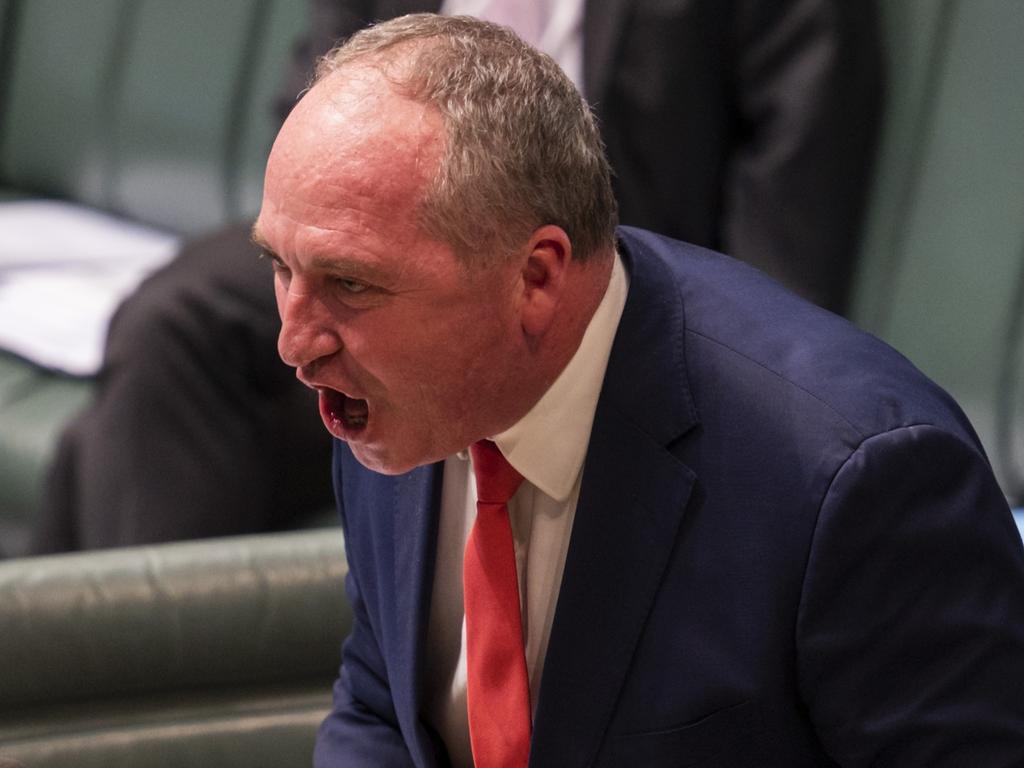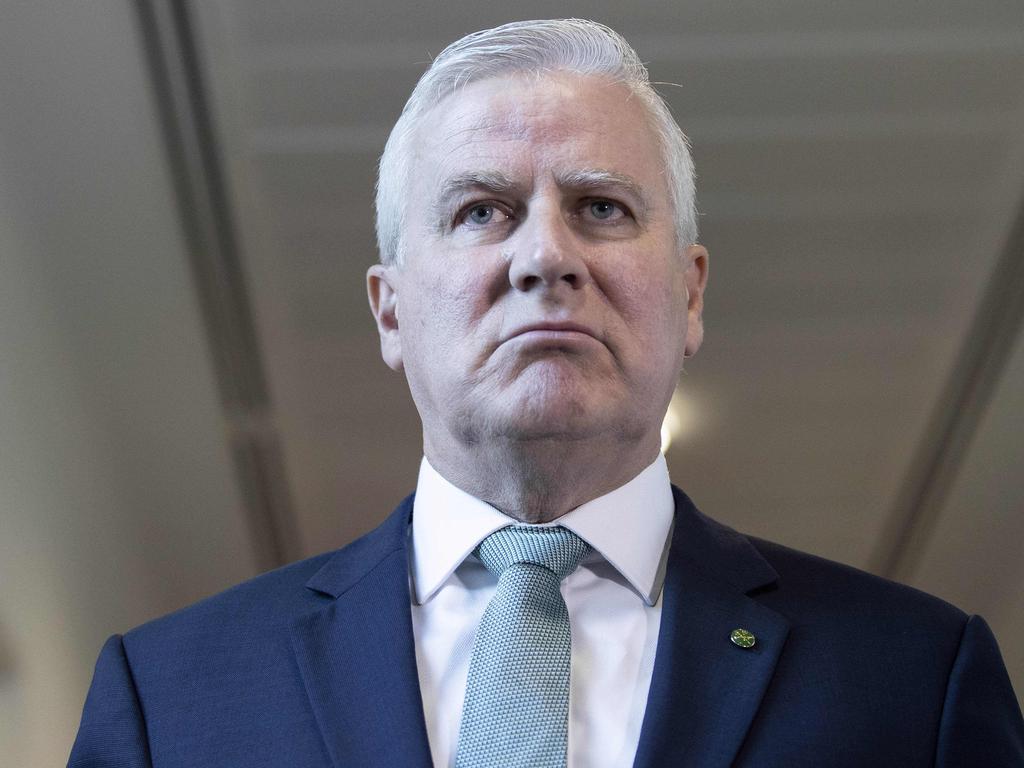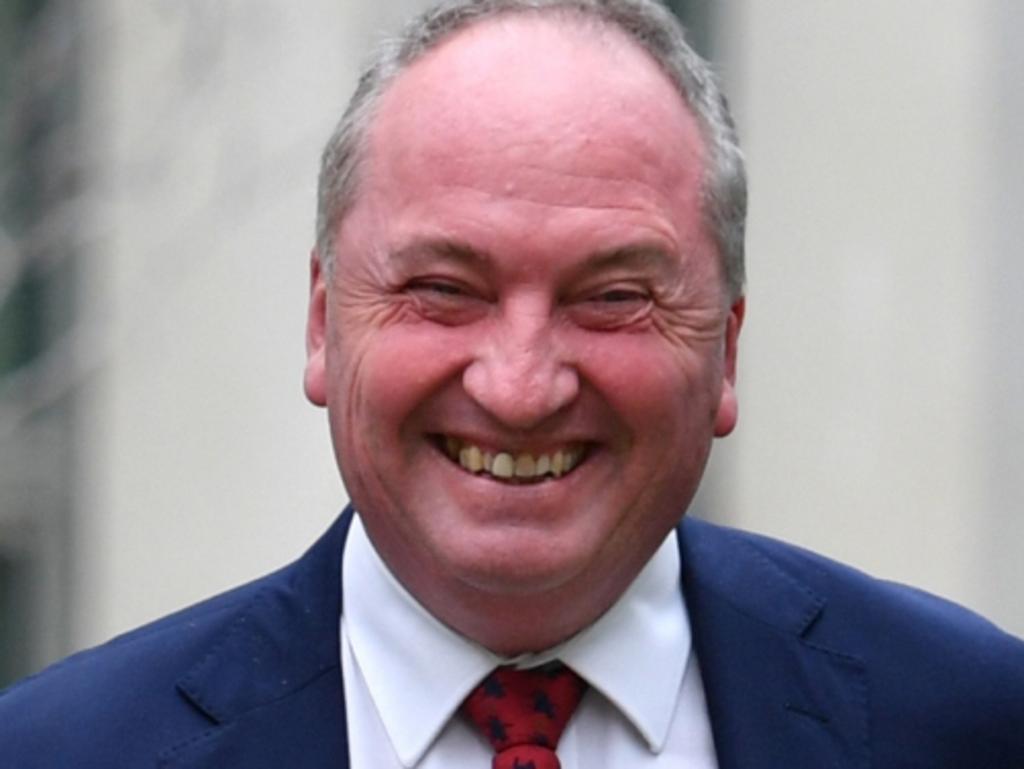Morrison did not allow space for McCormack to shine

Old hands recall how “disputes” were stage managed to make it appear the prime minister wilted after the tough fight put up by the junior party’s leader.
Barrels filled with pork rolled into critical electorates where the Nationals leader was allowed to announce or welcome their arrival with much fanfare. What is often a tricky relationship, central to the success of a Coalition government, has to be carefully managed by the prime minister. When it goes off the rails, the danger is the government could go with it.
Scott Morrison never got the hang of it. Someone who has watched these great political pantomimes up close for decades says Morrison managed to lose Michael McCormack through “careless management”. McCormack was a loyal coalitionist, a fundamentally decent bloke who showed inner strength in a superb performance on his last day in the job.
But during his three-year tenure, he was made to look supine. Darren Chester warned senior Liberals two years ago that they had to make space in the public debate for the Nationals leader. Chester was ignored. McCormack became the invisible man.
That, combined with Barnaby Joyce’s unyielding ambition, led to a brutal coup that has left the Nationals divided, not knowing how well or how badly the party or government would fare by the end of it.
“Only time will tell” was as much as they felt safe predicting.
The word around the traps was that Morrison did not warn McCormack he was going to harden his formulation on climate change to say that Australia would get to net zero emissions, “preferably” by 2050. When asked by this columnist if he had been consulted, McCormack skirted the question, refusing to confirm or deny while observing that it’s impossible for leaders to do a straw poll of colleagues when confronted by questions from journalists.

This despite the fact that the new formulation was in the speech Morrison delivered to the National Press Club on February 1. The Prime Minister’s Office says the two did speak beforehand and McCormack was sent a copy of the speech the night before.
Go figure.
It certainly was never a decision of cabinet, something which was painfully obvious from Marise Payne’s tortuous interview with David Speers on ABC’s Insiders. Months later, there is still no actual policy. There have been discussions in cabinet committees but nothing has been decided or worked out, not even how the “technology not taxes” path would accomplish its mission.
They aren’t even close to getting to the pointy end of how much it will cost and who will pay.
Certainly nothing concrete has been put to the Nationals party room, which would be the acid test for Morrison.
And now for Joyce.
It made one senior member of the government dismiss Morrison’s February formulation as “sloganeering”.
According to another senior National, Morrison did not respect McCormack. “He (Morrison) liked him because they didn’t have to have a transactional relationship. They had a convivial one that he controlled,” he said after McCormack’s toppling.
“Morrison was running the show. We had no voice, no opportunity to get anything up.”
Nationals say McCormack primarily brought it on himself, including by not vigorously promoting successes on infrastructure or the new agricultural visa in the UK free trade agreement, by not insisting the trade portfolio be returned to the Nationals and by not taking a “sword and shield” to stand up to Morrison on climate change when it was obvious his leadership was threatened.
However, they also believe Morrison was culpable because he did not go out of his way to credit McCormack with victories, or do anything to dispel the notion he was a pushover. It enhanced Morrison’s authority but ended up killing McCormack. Caring and sharing are not the first words that spring to mind when describing the Morrison political personality.
Joyce didn’t get his old job back by promising to make life easier for Morrison. The pressure is on him to win significant concessions. Now, the battles have to be real, not theatrical or manufactured. Joyce was voted back to reclaim the Nationals identity, which means, among other things, he will challenge the Prime Minister’s cherished media dominance to highlight the differences and to drive the hard bargains. He is there to reassert the authority of the Nationals and to improve their electoral position, even at the expense of the Liberals.
To prove he has learned from his mistakes, he also has to reunite his team. He won’t do that if he punishes solid performers such as Chester.
Morrison, who has encountered little or no resistance during his tenure, which has only encouraged him to believe his own publicity about his political prowess, has been caught in a wedge of his own making, the one so successfully squeezing Labor.
He now has to find ways to placate the Nationals, and control Joyce, which is something no one has managed successfully to date – not his wife, not his staff, not his colleagues – so he can hang on to critical seats in Queensland and win others around the Hunter Region in NSW, without making so many concessions that he loses the inner suburban seats held by Liberal MPs.
Morrison’s poor judgment, the debacle of the vaccination rollout, the failures on quarantine, the monumental debt created by the monumental spending, his intolerance of criticism will all catch up with him eventually, most likely not until after the election, when he will reap what he has sown.







Liberal leaders, the smarter ones, have usually found ways without compromising too much, to give National Party leaders a few wins.